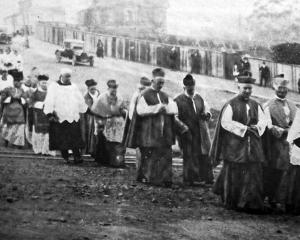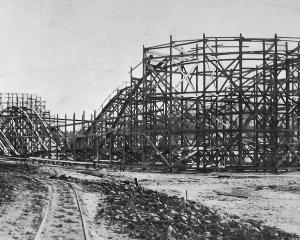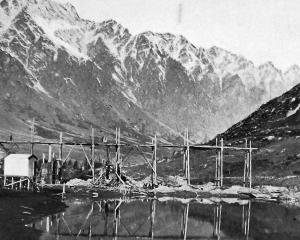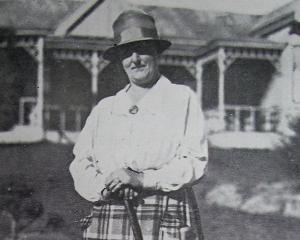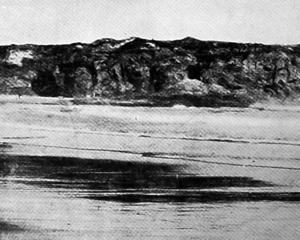
After emphasising the need of economising human and material resources in home occupations with a view to increasing the man-power and wealth available for war, he stated that the churches might well consider whether the time was not opportune for cutting down the expenditure of their households. He did not urge the reduction of the stipends of ministers; on the contrary he would like to see the salaries of poorly-paid clergymen raised, even during war time. What he referred to was the waste of men and money arising from the denominational rivalries of the Protestant churches. There were half-a-dozen churches in Dunedin, and more than a score in Otago that could be closed during the war, not only without sacrifice to the spiritual wellbeing of the people of the province but with an actual increase in spiritual influence. Apart altogether from the bitterness occasionally engendered by ecclesiastical competition, it was a costly extravagance, and that was enough to condemn it to-day. He did not plead just now for any organic union of the churches, but he believed the people would greatly appreciate an effort on the part of the churches to meet together with the purpose of eliminating, in the spirit of equality of sacrifice, the unnecessary church, and the unnecessary minister. If this were done, the Christian church of this country could release more men for combatant or non-combatant service without in any way impairing the spiritual ministration to the people; but, it could be done only by co-operation and equality of concession on the part of all the churches. Co-operation now to meet the exigencies of war would almost certainly be continued after the war, and thus a blessing of priceless benefit might be permanently secured.
The following notification with regard to the celebration of Anzac Day appears in last week's Gazette over the signature of the Acting Prime Minister (the Hon. Sir James Allen):- ``I hereby notify, for public information, that the Government has decided to observe Anzac Day this year on Monday, April 23, St. George's Day, instead of on Wednesday, April 25, owing to the municipal elections being fixed by Statute for the latter date.
``I shall be glad if the mayors of all cities and boroughs, the chairmen of county councils and town boards, as well as other local bodies, as far as their districts are concerned, will similarly observe the day in remembrance of the notable deeds performed by the Australians and our brave New Zealand soldiers on that memorable and historical occasion.
``It is specially fitting that on this occasion special services of public worship be held by all religious denominations, and I therefore appeal to all ministers of religion and all congregations to hold such services on behalf of the people of the dominion at such hours during the forenoon or afternoon as are found convenient.''
A seafaring man who stepped ashore from the Marama less than a fortnight ago with 45 19s in his pocket, had only 5 left when he appeared in the Police Court at Port Chalmers yesterday on a charge of drunkenness. The story of how he spent so much money in such a short space of time is a rather unusual one. About half the amount - to wit, 20 - was lost by him, or at any rate it disappeared in a lump sum, and another 11 went to pay fines for various minor offences for which he was haled before the Police Court, either in Dunedin or in Port Chalmers. The rest of the money he could probably account for himself, with perhaps, the assistance of those hotel-keepers whose premises he so freely patronised. Mr John Watson, who was the presiding justice yesterday, merely convicted and discharged him, adding the warning that if he appeared again he would be sentenced to three months' imprisonment.
Flounders have been uncommonly plentiful here this season (writes the Akaroa correspondent of the Christchurch Press). Old fishermen, whose experiences of the harbour go back nearly half a century, say they have never seen such hauls of the succulent flat fish as have been made during the past few weeks. - ODT, 21.3.1917.
Comments
The past is another country, as LP Hartley and Jim Sullivan say. It is almost inconceivable that Dr Bedford (Mosgiel) called on Christian Churches to release more men for the killing fields of War.

